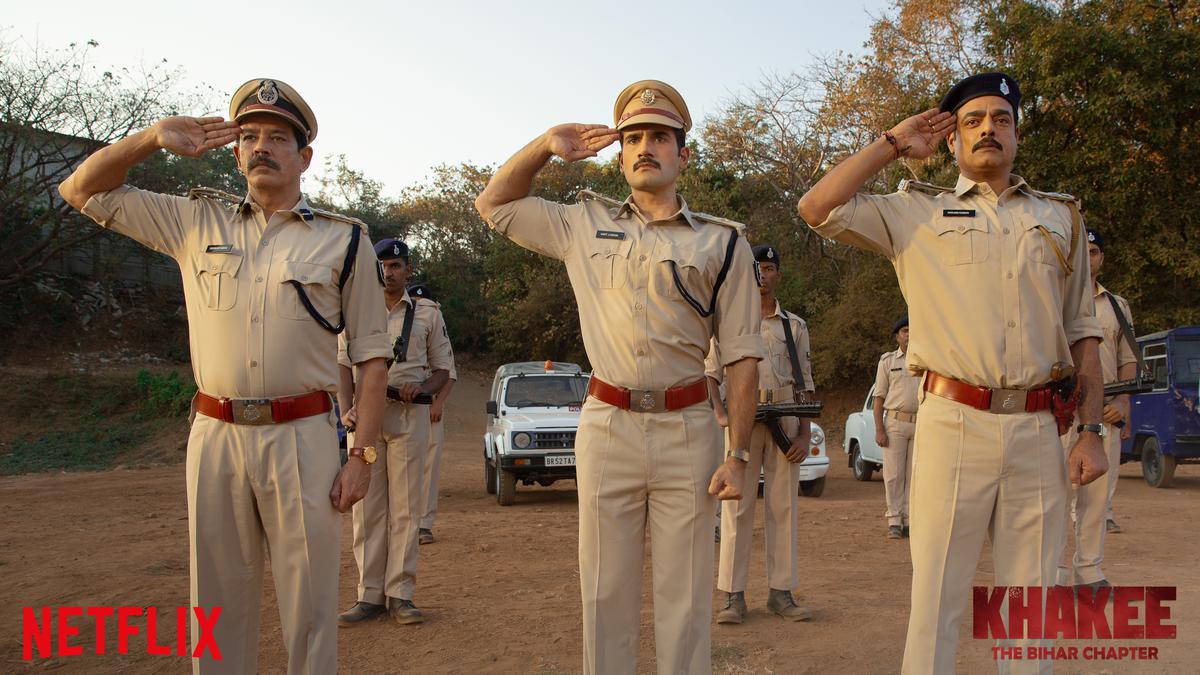
‘Khakee: The Bihar Chapter’ review: Inside the cauldron of caste and crime
The Hindu
The Neeraj Pandey series evokes a sense of the rhyme and rhythm of Bihar, but eventually runs out of fodder
Writer-director Neeraj Pandey chooses to see stories of crime and punishment from the perspective of the enforcers of law and order. Khakee: The Bihar Chapter is his latest baby that sets up a complex world only to become straitjacketed by the end. Based on senior IPS officer Amit Lodha’s bestseller Bihar Diaries and co-directed by Bhav Dhulia, it follows Amit’s (played by Karan Tacker) chase of the dreaded gangster Chandan Mahto (Avinash Tiwary) in the badlands of Bihar.
The writers (Pandey and Uma Shankar Singh) have changed the names of real figures and have used the creative license to fill in the gaps with a degree of dramatic flourish. In the process, they have added a little more depth to a real story that emanates from the vortex of caste and crime, the two staples that define Bihar politics. Early in the seven-episode series, they provide us with a sense of rhyme and rhythm of the state where misuse of power is rampant, but poverty and lack of development have not been able to denude youth of self-respect and ambition. It is for a reason that a child in Bihar grows up to address himself as ‘hum’ (meaning ‘we’).
An IIT graduate, the Rajasthan-born Amit takes time to understand the social engineering that drives both the criminal and cop universe in Bihar. The makers don’t delve deep into the sociopolitical causes of the caste calculus of crime in the state, where caste-based armies became a major concern at the turn of the millennium. However, they provide enough fodder to keep the discerning interested.
Meanwhile, the presentation of the fascination for surname investigation in the police department is both hilarious and disturbing at the same time. Anybody who has covered crime would have met chameleonic characters like IPS Mukteshwar Chaubey (Ashutosh Rana) in the corridors of power.
The scene where he scolds a broker for offering a ‘small’ laptop in place of a ‘large’ desktop captures a disturbing reality of our forces that are not up to the times. Amit becomes the face of change by using technology to catch mobile-led criminals. It is not just Chaubey, there is IPS Paswan (Anup Soni) as well to portray the other side of the caste spectrum in the services. How officers are shunted by political masters for their vested interests, provides another interesting layering.
In the tale of machismo, strong female characters come as a surprise in small packets. Be it Tanu (Nikita Dutta), the resolute wife of Amit, or the attention-seeking Meeta Devi (Aishwarya Sushmita), they impress with their tenacity.
The other side of the law is equally spurred by fragile egos and is divided into caste brackets. Even in prisons, power is loaded in favour of those inmates who have got more numbers from their community.













